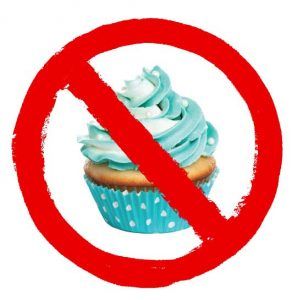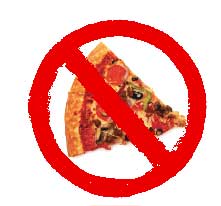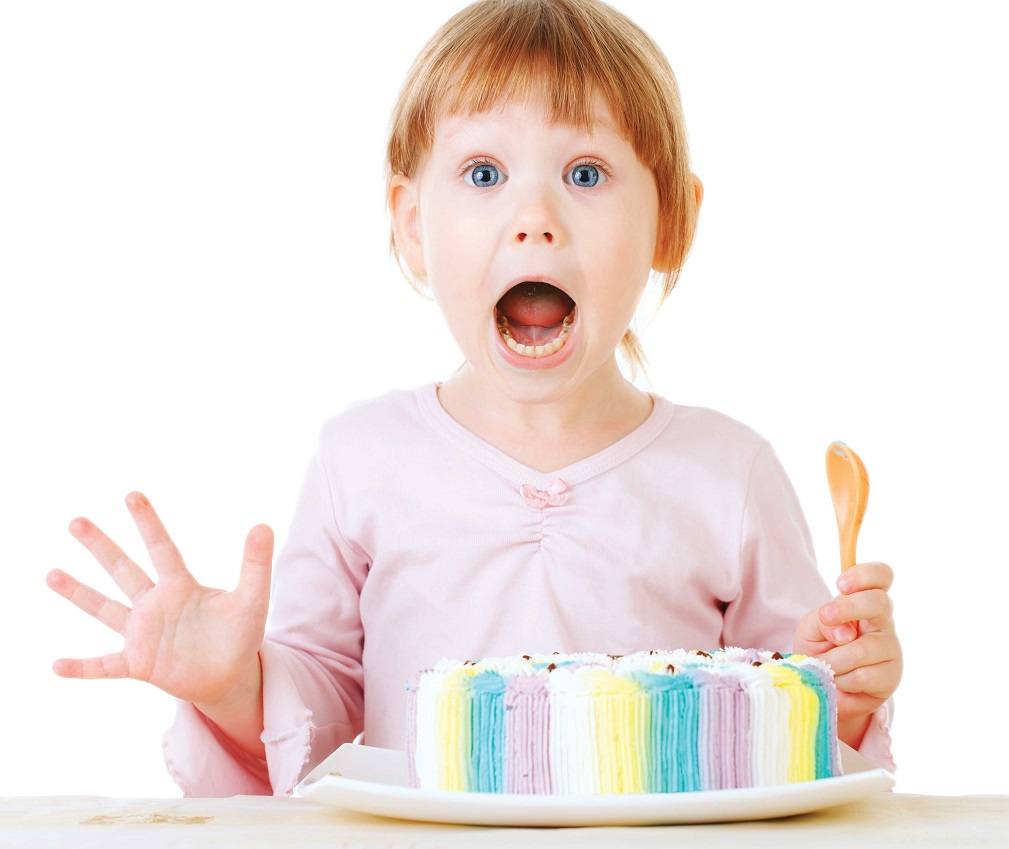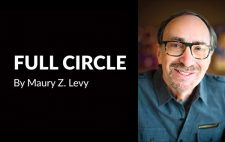As schools struggle to set limits on sugary snacks to keep students healthy, parents, teachers and kids are faced with one big question: just how happy can your birthday really be without cake?
Not so many years ago – when her older son Joey was in elementary school – celebrating a birthday in school was a big deal, like opening presents on Christmas morning, recalls Cherry Hill mother Diane Roberts.
 Joey put a lot of thought into the treats he would bring in. Some years it was the classic cupcakes; other birthdays were feted with Munchkins. There were even pizzas delivered at lunch for the entire class.
Joey put a lot of thought into the treats he would bring in. Some years it was the classic cupcakes; other birthdays were feted with Munchkins. There were even pizzas delivered at lunch for the entire class.
“He always wanted to bring in something that everyone would enjoy,” Roberts recalls.
How things have changed in the five years since Joey, 15, moved on from J.F. Cooper Elementary School. Like many other schools in South Jersey and beyond, birthday celebrations are now food-free affairs. With heightened awareness of childhood obesity and its serious health impacts, the explosion of allergies – as well as pressure on educators to make every minute count toward academics – food is no longer part of the equation.
At many schools, new traditions have replaced the old, including names called out during morning announcements, monthly birthday luncheons with the principal, certificates and party hats. And while many parents are happy with the change, others find it hard to digest.
“For me, it’s not so much about the cupcake as it’s about making the kids feel special one day of the year,” says Roberts. “They’re only in elementary school until they’re 10 or 11. Just let these kids be kids and enjoy these times. Once they get to middle school, all these things are gone.”
While no one is keeping tabs on how many schools have gone junk food-free in the past few years, it is clear that the numbers are growing. In Cherry Hill alone, several schools went food-free for school celebrations this year, joining other schools that made the switch in recent years.
 “Food and celebrations are definitely topics being discussed more in the last couple of years,” says Joseph Meloche, Cherry Hill Public Schools’ assistant superintendent. “We’re all thinking about what it means to celebrate: what’s appropriate and what message we’re giving kids about food. Kids learn from adults by our everyday actions – not just what we say but what we do.”
“Food and celebrations are definitely topics being discussed more in the last couple of years,” says Joseph Meloche, Cherry Hill Public Schools’ assistant superintendent. “We’re all thinking about what it means to celebrate: what’s appropriate and what message we’re giving kids about food. Kids learn from adults by our everyday actions – not just what we say but what we do.”
Although the school district leaves it up to individual schools to decide what works for their own communities, health and wellness are ideals promoted across the district.
So much about the way we educate children is very different from our experience growing up,” adds Meloche, who started his administrative career as an elementary school principal, a position that made him privy to many birthday cupcakes. “I do think there’s going to be a shift in how we recognize kids and how we let them know they’re special. I think we will get to a new normal.”
Among those typically driving the bans are school nurses. Naturally, heated discussions around food are regularly brought up at Gloucester County School Nurses Association meetings, says Association President Pam Wolcott, who works at National Park Elementary School. National Park reformed its birthday celebrations some eight years ago.
“We looked at the school in general and realized the amount of sweets available to kids was kind of ridiculous,” says Wolcott. “Kids were walking around with cupcakes every day, offering them to secretaries and teachers. It was getting out of hand and taking a lot of time away from the school day.”
Still, not all school populations are willing to give up the cupcake – which is up there with apple pie as a symbol of Americana and childhood happiness. When Texas tried to ban cupcakes in schools a few years back, the backlash was so intense that state legislators passed “the Safe Cupcake Amendment,” ensuring that parents and grandparents could bring in whatever food item they choose for a child’s birthday celebration in public schools.
How has such a small treat picked up such emotional weight? As many see it, it’s not so much about the cupcake but what it represents.
“My guess is that most people who are upset about this are reacting to a broader sense that their individual rights are being eroded by the claims of a few,” says Daniel Hart, professor of childhood studies and psychology at Rutgers-Camden. “In essence, people see this issue as whether an aggressive assertion of rights on behalf of a small number of people is sufficient to eclipse a shared tradition.”
If the controversial tradition was a gun salute in school, with the occasional accident in which a child gets hurt, most reasonable parents would support doing away with that tradition, Hart says. But with food allergies and sugar content, not every parent buys into the assertion that treats that have long been part of school traditions are actually dangerous.
“If people truly believed there were kids in a class that would be damaged by exposure to cupcakes, there is not much doubt they would agree to a ban,” Hart adds.
Still, advocates of food bans assert that, given the skyrocketing rate of child obesity, it is necessary that schools use all means necessary to eliminate low-nutrient, calorie-dense treats during the academic day. And it’s not just school bans. New Jersey became the first state in the nation to ban junk food in public schools in 2007. The ban went national this school year, applying to high-sugar, high-fat snacks sold in vending machines, cafeterias, snack bars, school stores and even fundraisers during school hours. Like the food-free birthday celebrations, the new junk food ban has been controversial.
“When it comes to school food, cupcakes are not really the issue,” agrees Marion Nestle, a professor in the Department of Nutrition, Food Studies and Public Health at New York University. “They are a symbol of a much larger issue – the prevalence of a great deal of sugary foods available in schools.”
Statistics on childhood obesity are truly staggering. In the past 30 years, the number of overweight and obese children and adolescents has more than doubled. With one in three children now considered overweight or obese, more children are suffering from problems typically associated with older adults, including cardiovascular disease, high cholesterol and high blood pressure, bone and joint problems and pre-diabetes, a condition in which blood glucose levels indicate a high risk for developing diabetes. Moreover, studies show overweight and obese school children have lower levels of academic achievement and increased rates of absenteeism compared to leaner peers.
In the long term, overweight adolescents and children are more likely to become obese adults.
But will a few school celebrations really tip the scales? Apparently, it can, says Nestle, noting that an NYU doctoral student published a nutritional analysis of the foods served at birthday celebrations in a couple of New York City elementary schools several years ago.
“Some of them came to more than 600 calories each when you added up the cake, chips and soda,” she says. “And that did not include the other sweets to which kids were exposed – the ones they bought as well as the candy tossed to them for correct answers. Young kids in those schools were taking in astonishing numbers of calories from treats every day.”
So no, cupcakes are not innocent. They’re packed with empty calories and sugar, Nestle says.
“Kids will always choose sugary foods over anything else,” she adds. “That’s why adults should be making sensible decisions about what the kids are eating.”
Still, even among obesity experts, not all are convinced that eliminating cupcakes sends the intended message.
Charlotte Markey, a Rutgers University psychology professor and author of the recently released book “Smart People Don’t Diet,” says banning cupcakes will make kids desire the forbidden foods more. She instead favors moderation – perhaps having all kids with birthdays during the week celebrate their special days with classroom treats at once.
“It’s good that people are finally waking up to the realization that obesity is really a problem, but going too far to the extreme is not going to work,” says Markey, who researches the social influences on eating-related behaviors. “Kids love celebrating their birthdays, and celebrating with food is important to them. I don’t think we want to stop doing that. It just doesn’t have to be the entire doughnut.”
Food allergies are also driving the bans. According to the Centers for Disease Control and Prevention, food allergies among children increased approximately 5 percent between 1997 and 2011, affecting one in every 13 children. A reaction can range from a mild response (such as an itchy mouth) to anaphylaxis, a severe and potentially deadly response. Studies show that activities outside the norm, like school parties, present a higher risk for allergic children.
While most families are well aware of their children’s triggers by the time they enter elementary school, there are likely to be a few children in every classroom across America who will be excluded from food celebrations due to their allergies. Often their parents provide allergen-free treats, which are brought out during the merriment.
Cherry Hill mother Alexis Convissar’s children used to be the ones excluded until Nathan, 7, and Eliana, 5, recently grew out of their dairy allergies.
“Birthday parties were always the most difficult for them,” recalls Convissar, who would provide her kids with their own food. “They definitely felt left out. They knew they were different, and everyone else knew they were different.”
Although their school friends were always sympathetic and looked out for their safety, some parents were less aware, sometimes offering her children foods that could have harmed them.
“If people made their cupcakes at home, there was no way to really know if they were safe unless I really knew the parent and could trust they could read the ingredients,” she explains.
Although her children have outgrown their dairy allergies, Convissar still applauds her school for switching to food-free birthday celebrations.
“It’s not that we only eat healthy food, but I’d like to have a little more control over the amount of junk food my children eat,” she says.
Sometimes schools set out to ban foods entirely and instead end up with a compromise. At National Park Elementary School, for example, birthday food wasn’t completely thrown out but greatly reduced. Now, instead of every child celebrating on their actual birthday, they gather during their birthday month to have lunch in a special room with the principal. The Student Council raises $20 each month to buy doughnuts (one each) as treats for the kids, says Pam Wolcott, the school nurse. Kids who may be allergic to the ingredients in doughnuts are given a different food treat.
“The kids love it,” she notes. “They’re so excited to sit around a big table and have lunch in a special room where they get to spend time with the principal.”
Although Wolcott says she would have preferred eliminating the sugary treats all together, the compromise seems to work and has greatly reduced the sugar highs and lows throughout the day.
“We all need to stick to our guns and promote the fact that, yes, we want to celebrate children’s birthdays but we also want to educate them to be healthy – because we want them to celebrate many, many more birthdays.”









